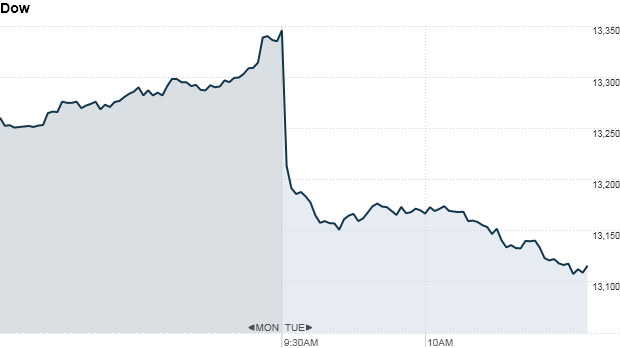[h=1]Report: Obama Campaign Accepts 16x More Donations via Erroneous Zip Codes than Romney[/h]
41
0
79
Email Article
Print Article
Send a Tip
by
Tony Lee 22 Oct 2012, 12:34 PM PDT
38 post a comment
[h=2]President Barack Obama's campaign accepted 16 times more in donations that listed invalid zip codes than Mitt Romney's campaign, a report by the Government Accountability Institute (GAI) found, further exposing the Obama campaign's lax online security measures that make the campaign vulnerable to fraudulent online donations.[/h] GAI, a non-partisan investigative and research watchdog group,
announced its findings on Tuesday in a follow-up to
their report that detailed how campaigns on both sides of the aisle are vulnerable to illicit foreign and domestic donations. The study found nearly half (47.3%) of the "U.S. Congress have donation websites lacking basic anti-fraud protections that make them vulnerable to foreign and fraudulent online donations."
GAI analyzed Federal Election Commission (FEC) from the 2012 election cycle and found Obama's campaign has accepted $4,580,805.35 in campaign donations that list invalid zip codes—a figure 16 times greater than Romney’s campaign. The study found that Gov. Romney’s 2012 FEC data include $282,814.78 in donations that have invalid zip codes. The Obama campaign curiously pays more in fees to turn off the "CVV" security feature that requires those donating online to enter the three or four digit number on the back of the credit card. In addition, while the campaign claims use the Address Verification System (AVS) security check, the number of donations with invalid zip codes that the campaign has accepted proves the campaign uses one of the weakest AVS systems online.
GAI President Peter Schweizer explains, "the use of a robust Address Verification System would significantly minimize donations with invalid zip codes from slipping through the net."
“When you use your credit card at a pay-at-the-pump gas station, you have to enter your zip code. Enter the wrong number or none at all, your transaction is denied," Schweizer remarked. "If that’s the standard to buy gas, surely it’s reasonable to expect the same for donating to federal candidates.”
GAI analyzed the 2008 presidential campaign and found a similar pattern, with then-Sen. Obama receiving $2,778,808.97 in donations with invalid zip codes, compared to Sen. John McCain’s $431,046.
The Obama campaign could have accepted more donations since GAI only could analyze donations that were reported, which means they had to be over $200. Since campaigns do not need to report donations under $200, the Obama campaign could have accepted millions of more in donations from those with invalid zip codes which the campaign was not obligated to report.
This weekend,
The New York Post reported on a British citizen living in England who contributed two $5 donations to the Obama campaign. And while the Romney campaign rejected his attempts at making the same donations, the Obama campaign accepted his donation even though "used his actual street address in England but entered Arkansas as his state with the Schenectady, NY, ZIP code of 12345."
If the Obama campaign has used a stricter AVS or had the CVV requirement, as Romney's campaign requires, Walker's donation would have been rejected.
“When I did Romney’s, the payment got rejected on the grounds that the address on the card did not match the address that I entered,” Walker told the
Post. “Romney’s web site wanted the code from the back of card. Barack Obama’s didn’t.”
GAI also released its raw data collected for its report on internet fundraising on
www.CampaignFundingRisks.com.

 [h=2]The Nashville Tennessean, the traditionally liberal newspaper that gave Al Gore his start in journalism, endorsed Republican challenger Mitt Romney for President Thursday.[/h] It was another stunning setback for the Obama campaign, already reeling from plunging poll numbers.
[h=2]The Nashville Tennessean, the traditionally liberal newspaper that gave Al Gore his start in journalism, endorsed Republican challenger Mitt Romney for President Thursday.[/h] It was another stunning setback for the Obama campaign, already reeling from plunging poll numbers.




















